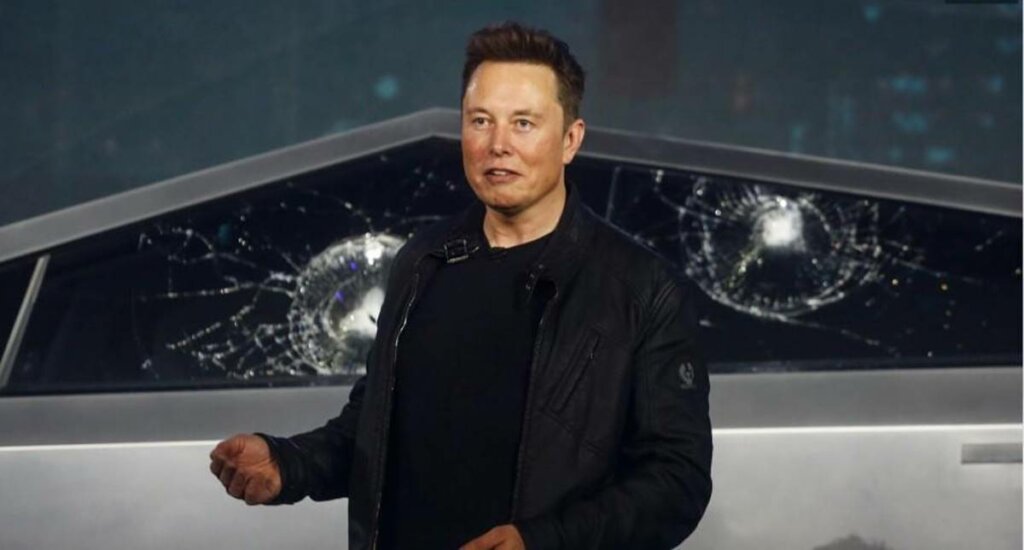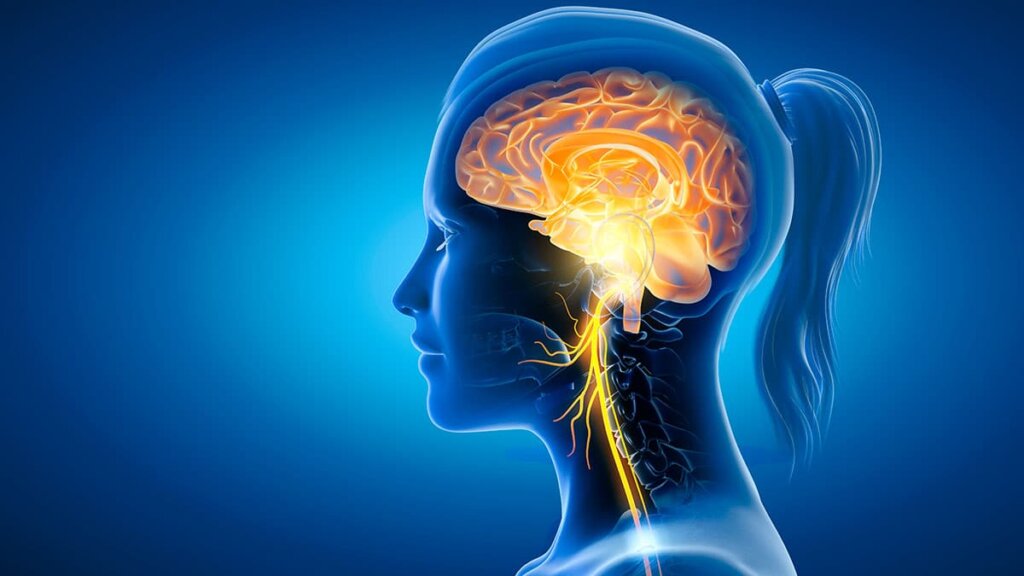Elon Musk, a Brilliant Mind on the Autism Spectrum


Written and verified by the psychologist Valeria Sabater
Elon Musk revealed on Saturday Night Live (SNL) that he has Asperger’s syndrome. For many, this was a surprise. It was also a cause for celebration for making this developmental disorder more visible. Nevertheless, his announcement was not so well received by everyone.
It didn’t take long for social media to echo the news. In fact, in a matter of hours, a controversy was underway. It concerned the fact that, on the show, the celebrated physicist, entrepreneur, inventor, co-founder of PayPal, Tesla Motors, and SpaceX had joked about having Asperger’s. Furthermore, he’d justified many of his strange and misplaced behaviors.
Musk also talked about many things that his particular brain had enabled him to do. For example, to reinvent electric cars and create a project to send people to Mars.
However, the truth is, that neither the terminology nor the vision that Elon Musk exposed to the media is correct. As a matter of fact, the term “Asperger’s syndrome” is no longer in use. Indeed, the American Psychological Association (APA) removed Asperger’s syndrome from the Diagnostic and Statistical Manual of Mental Disorders (DSM) in 2013.
Nowadays, we talk about autism spectrum disorder. This is important for many reasons, some of which we’ll discuss in this article.
“I don’t always have a lot of intonation or variation in how I speak, which I’m told makes for great comedy. I’m actually making history tonight as the first person with Asperger’s to host SNL.”
-Elon Musk-

Asperger’s or autism? Simple “etiquette” often leads to discrimination
Asperger’s syndrome is often viewed more kindly and seen as a far more interesting disorder than autism. In fact, the person with ” aspies” (Asperger’s) is usually viewed as someone brilliant and exceptional. However, the “autistic” person tends to be seen as a person with little expression as well as limited communication and functioning ability.
The truth is, that this type of social construction —or deconstruction— and the arbitrary use of labels does a lot of damage. For example, as we mentioned earlier, the American Psychological Association (APA) removed the term “Asperger’s” in 2013. This action was celebrated by the entire autism community.
Goethe University (Germany) conducted research that justified this decision. Indeed, the study confirmed that the time has come to end the clinical perspective that has brought so many errors and diagnostic difficulties in respect of this disorder. The reasons for this are as follows:
Autism is a spectrum and isn’t divided into categories
Until a few years ago, the Asperger syndrome that Elon Musk claims to have was linked to a specific label. It described those people with autism who exhibited superior functioning. They were almost always men. Furthermore, they had certain limitations in expressiveness and sociability.
On the other side were the autistic people. In fact, these tended to be generally children with greater functional disabilities. This divided approach was completely wrong. However, it was Hans Asperger himself, the Austrian pediatrician who undertook research on disabled children for the Nazis, who introduced this controversial term that was maintained for so long.
We now know that autism spectrum disorder is a condition in which each person has unique characteristics and needs. There are no categories. In fact, it’s a spectrum and there are different ways in which the disorder manifests itself. Consequently, sufferers range from non-functional geniuses to functional people with small limitations who probably don’t even realize they’re on the autistic spectrum.
Nowadays, we no longer use stigmatizing terminologies like “high functioning person” or “low functioning person”.

Unique and exceptional people
Elon Musk is one of the brightest minds of our time. However, we know that he had a difficult childhood. That, by the age of 12, he’d already created his first video game and that his reference point was always Nikola Tesla. Now, Musk is one of the richest people in the world. He’s currently focused on a mission to Mars as well as Neuralink, a company that constructs interfaces to treat various disabilities. You can’t but fail to admire him.
However, his monologue on Saturday Night Live (SNL) certainly wasn’t the most successful. Furthermore, he wasn’t actually the first person with an autism spectrum disorder to host this program. In fact, actors Dan Aykroyd and Chris Rock, as well as musician David Byrne all hosted the show, and they’re also all on the spectrum. In addition, like Musk, they’re equally brilliant and successful people in their own particular fields.
To talk of Asperger’s syndrome today is to use an outdated and discriminatory term. Indeed, in autism spectrum disorder, there aren’t simply geniuses and poorly functional people. In fact, people with this neurobiological condition, are both unique and exceptional. They’re adults and children with diverse needs that must be understood and attended to.
It’s wonderful that personalities like Elon Musk, Anthony Hopkins, Greta Thunberg, Wentworth Miller, and Keanu Reeves talk about their autism. However, we also need to remember the lesser-known people around us who are also on the autistic spectrum.
Elon Musk revealed on Saturday Night Live (SNL) that he has Asperger’s syndrome. For many, this was a surprise. It was also a cause for celebration for making this developmental disorder more visible. Nevertheless, his announcement was not so well received by everyone.
It didn’t take long for social media to echo the news. In fact, in a matter of hours, a controversy was underway. It concerned the fact that, on the show, the celebrated physicist, entrepreneur, inventor, co-founder of PayPal, Tesla Motors, and SpaceX had joked about having Asperger’s. Furthermore, he’d justified many of his strange and misplaced behaviors.
Musk also talked about many things that his particular brain had enabled him to do. For example, to reinvent electric cars and create a project to send people to Mars.
However, the truth is, that neither the terminology nor the vision that Elon Musk exposed to the media is correct. As a matter of fact, the term “Asperger’s syndrome” is no longer in use. Indeed, the American Psychological Association (APA) removed Asperger’s syndrome from the Diagnostic and Statistical Manual of Mental Disorders (DSM) in 2013.
Nowadays, we talk about autism spectrum disorder. This is important for many reasons, some of which we’ll discuss in this article.
“I don’t always have a lot of intonation or variation in how I speak, which I’m told makes for great comedy. I’m actually making history tonight as the first person with Asperger’s to host SNL.”
-Elon Musk-

Asperger’s or autism? Simple “etiquette” often leads to discrimination
Asperger’s syndrome is often viewed more kindly and seen as a far more interesting disorder than autism. In fact, the person with ” aspies” (Asperger’s) is usually viewed as someone brilliant and exceptional. However, the “autistic” person tends to be seen as a person with little expression as well as limited communication and functioning ability.
The truth is, that this type of social construction —or deconstruction— and the arbitrary use of labels does a lot of damage. For example, as we mentioned earlier, the American Psychological Association (APA) removed the term “Asperger’s” in 2013. This action was celebrated by the entire autism community.
Goethe University (Germany) conducted research that justified this decision. Indeed, the study confirmed that the time has come to end the clinical perspective that has brought so many errors and diagnostic difficulties in respect of this disorder. The reasons for this are as follows:
Autism is a spectrum and isn’t divided into categories
Until a few years ago, the Asperger syndrome that Elon Musk claims to have was linked to a specific label. It described those people with autism who exhibited superior functioning. They were almost always men. Furthermore, they had certain limitations in expressiveness and sociability.
On the other side were the autistic people. In fact, these tended to be generally children with greater functional disabilities. This divided approach was completely wrong. However, it was Hans Asperger himself, the Austrian pediatrician who undertook research on disabled children for the Nazis, who introduced this controversial term that was maintained for so long.
We now know that autism spectrum disorder is a condition in which each person has unique characteristics and needs. There are no categories. In fact, it’s a spectrum and there are different ways in which the disorder manifests itself. Consequently, sufferers range from non-functional geniuses to functional people with small limitations who probably don’t even realize they’re on the autistic spectrum.
Nowadays, we no longer use stigmatizing terminologies like “high functioning person” or “low functioning person”.

Unique and exceptional people
Elon Musk is one of the brightest minds of our time. However, we know that he had a difficult childhood. That, by the age of 12, he’d already created his first video game and that his reference point was always Nikola Tesla. Now, Musk is one of the richest people in the world. He’s currently focused on a mission to Mars as well as Neuralink, a company that constructs interfaces to treat various disabilities. You can’t but fail to admire him.
However, his monologue on Saturday Night Live (SNL) certainly wasn’t the most successful. Furthermore, he wasn’t actually the first person with an autism spectrum disorder to host this program. In fact, actors Dan Aykroyd and Chris Rock, as well as musician David Byrne all hosted the show, and they’re also all on the spectrum. In addition, like Musk, they’re equally brilliant and successful people in their own particular fields.
To talk of Asperger’s syndrome today is to use an outdated and discriminatory term. Indeed, in autism spectrum disorder, there aren’t simply geniuses and poorly functional people. In fact, people with this neurobiological condition, are both unique and exceptional. They’re adults and children with diverse needs that must be understood and attended to.
It’s wonderful that personalities like Elon Musk, Anthony Hopkins, Greta Thunberg, Wentworth Miller, and Keanu Reeves talk about their autism. However, we also need to remember the lesser-known people around us who are also on the autistic spectrum.
All cited sources were thoroughly reviewed by our team to ensure their quality, reliability, currency, and validity. The bibliography of this article was considered reliable and of academic or scientific accuracy.
- Bejerot S, Nordin V. Autismspektrumsyndrom ersätter Aspergers syndrom och autism [Autism spectrum syndrome replaces Asperger syndrome and autism]. Lakartidningen. 2014 Sep 23;111(39):1660-3. Swedish. PMID: 25253606.
- Freitag CM. Autismus-Spektrum Störung nach DSM-5. Konzeptualisierung validität und reliabilität, bedeutung für klinik, Versorgung und forschung [Autism Spectrum Disorder in DSM-5 – concept, validity, and reliability, impact on clinical care and future research]. Z Kinder Jugendpsychiatr Psychother. 2014 May;42(3):185-92. German. doi: 10.1024/1422-4917/a000288. PMID: 24846867.
This text is provided for informational purposes only and does not replace consultation with a professional. If in doubt, consult your specialist.







